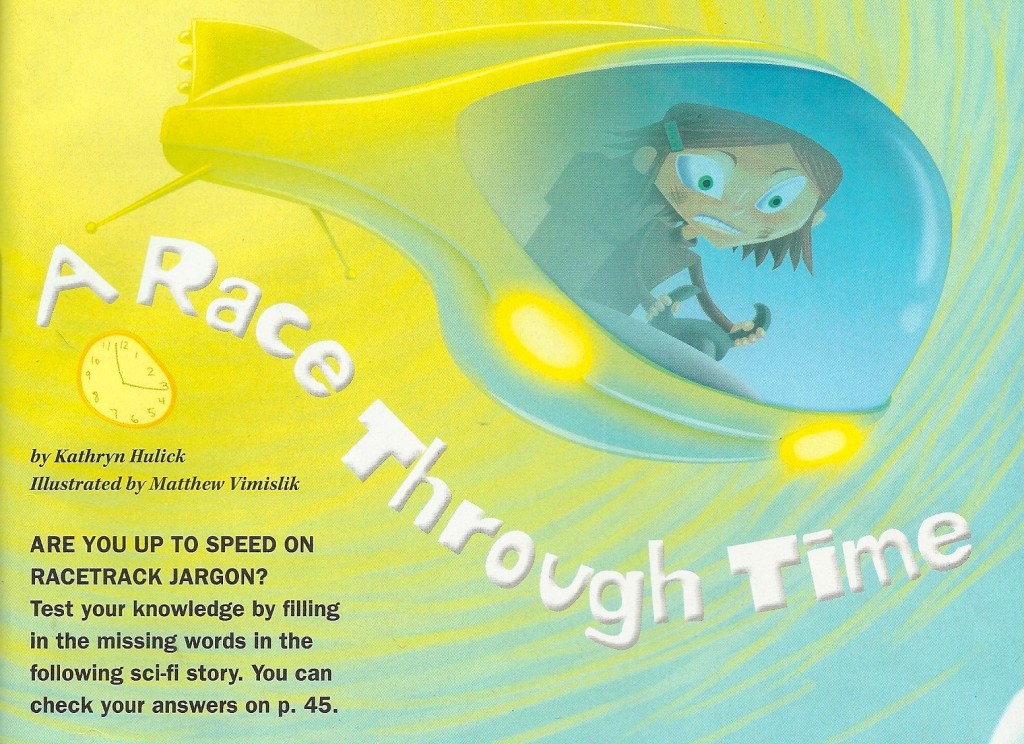When I decided to write for kids, I wanted to write fiction. I love telling stories, and I really love making things up. Since I started writing for Odyssey five years ago, I’ve tried multiple times to pitch a science fiction story concept, and nothing ever stuck. I wrote a few Rat Pack Researcher mysteries, and those were great fun. Then the editor asked me if I had any ideas for a fill-in-the-blank story for an issue about race cars. “Of course!” I said, and then sat down to come up with ideas.
The winner: a kid from the future in a time machine breaks down at a race track and has to find a new heat shield so she can get back to her time.
Kids who read the story get to play a game with racing jargon terms. They fill in blanks in the story with words from a box. But the way the words are used in the story isn’t necessarily how they are used in racing. For example, the term “loose” in racing means that the rear tires are lifting off the track. But in the story, it just means “not attached tightly.”
Coming up with the idea for this story was fun and easy, but then I had to actually learn about racing and race car jargon.
Research is usually one of my least favorite parts of the writing-process… which I guess is strange for someone who writes a lot of non-fiction! I do like interviewing experts, but I don’t like combing through articles and books and trying to keep track of everything.
Yes, I grew up in New Hampshire, but I never joined the ranks of NASCAR fanatics. I read through quite a few online collections of racing terms to figure out which terms might be the most important to include. And then, on a 2 hour drive through New Hampshire, I listened to NASCAR.
I wasn’t intending to listen to a race, but I happened to be driving through an area with very few radio options. I had been thinking about this story, so I listened. And I learned. Hearing the actual race announcers use the terms I’d been researching made the whole story come to life.
Also, my Dad was a huge help. Coincidentally, he’d driven a race car at the NH motor speedway just a few weeks before I started working on this story! We’d given him the racing lesson as a birthday gift. So I was able to ask him questions like: “What does it sound like and feel like to be behind the wheel in a race car?” He also explained that you don’t start a race car with a key, and there’s no door – you climb in through the window!
Hearing about his experience and listening to the actual race is the type of research I enjoy. It’s immediate, interesting, and I’m more likely to get answers to questions I didn’t know to ask than if I tried to rely on Google alone.

